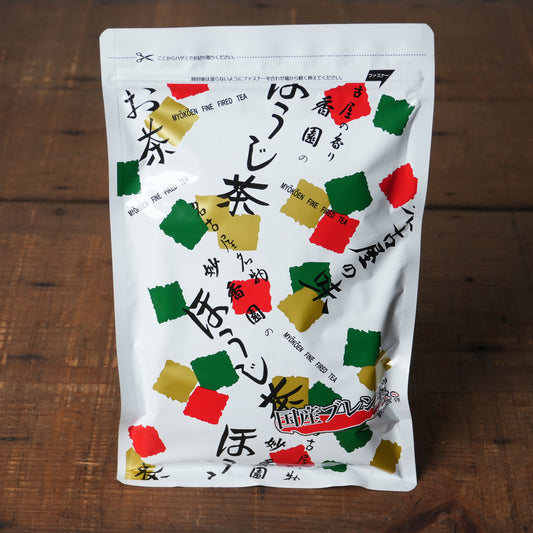-
Japanese Hojicha Blend – Curated Original Roasted Green Tea by Myokoen 150g/5.2oz
Regular price $25.00 USDRegular priceUnit price per -
Ehime Yabukita Genmaicha - Fresh Green Tea with Roasted Brown Rice Flavor by TEA FACTORY GEN 60g/2.11 oz
Regular price $25.00 USDRegular priceUnit price per -
Hōjicha – Richly Nuanced Roasted Kuki Sencha with Natural Sweetness by TEA FACTORY GEN 50g/1.76 oz
Regular price $25.00 USDRegular priceUnit price per -
Hiroshima Zairai Koji Fermented Black Tea - Made with Sake Koji and Native Tea Leaves Craft Tea by TEA FACTORY GEN 20g/0.70 oz
Regular price $25.00 USDRegular priceUnit price per -
Hiroshima Zairai Hama-cha - Native Bancha Dried At Beach by TEA FACTORY GEN 30g/1.06 oz
Regular price $18.00 USDRegular priceUnit price per -
Ceremonial Grade Matcha Powder - No Chemicals, Naturally Sweet, Delicate Aroma by TEA FACTORY GEN 30g/1.06 oz
Regular price $40.00 USDRegular priceUnit price per -
Shincha Native Hiroshima Seicha - Naturally Cultivated First Flush Green Tea by TEA FACTORY GEN 20g/0.70 oz
Regular price $25.00 USDRegular priceUnit price per -

Shincha Gyokuro - Organic Japanese Tea with Rich Umami and Covered Aroma by Nakai Tea Farm 50g/1.7oz
Regular price $33.00 USDRegular priceUnit price per -
Shincha - Organic Japanese Refreshing Aroma by Nakai Tea Farm 50g/1.7oz
Regular price $25.00 USDRegular priceUnit price per -
Genmaicha with Matcha - Organic Japanese Brown Rice Toasty Aroma by Nakai Tea Farm 100g/3.5oz
Regular price $25.00 USDRegular priceUnit price per -
Premium Matcha Powder - Organic Traditional Japanese Tea, Rich and Full-Bodied by Nakai Tea Farm 30g/1.0 oz
Regular price $35.00 USDRegular priceUnit price per











